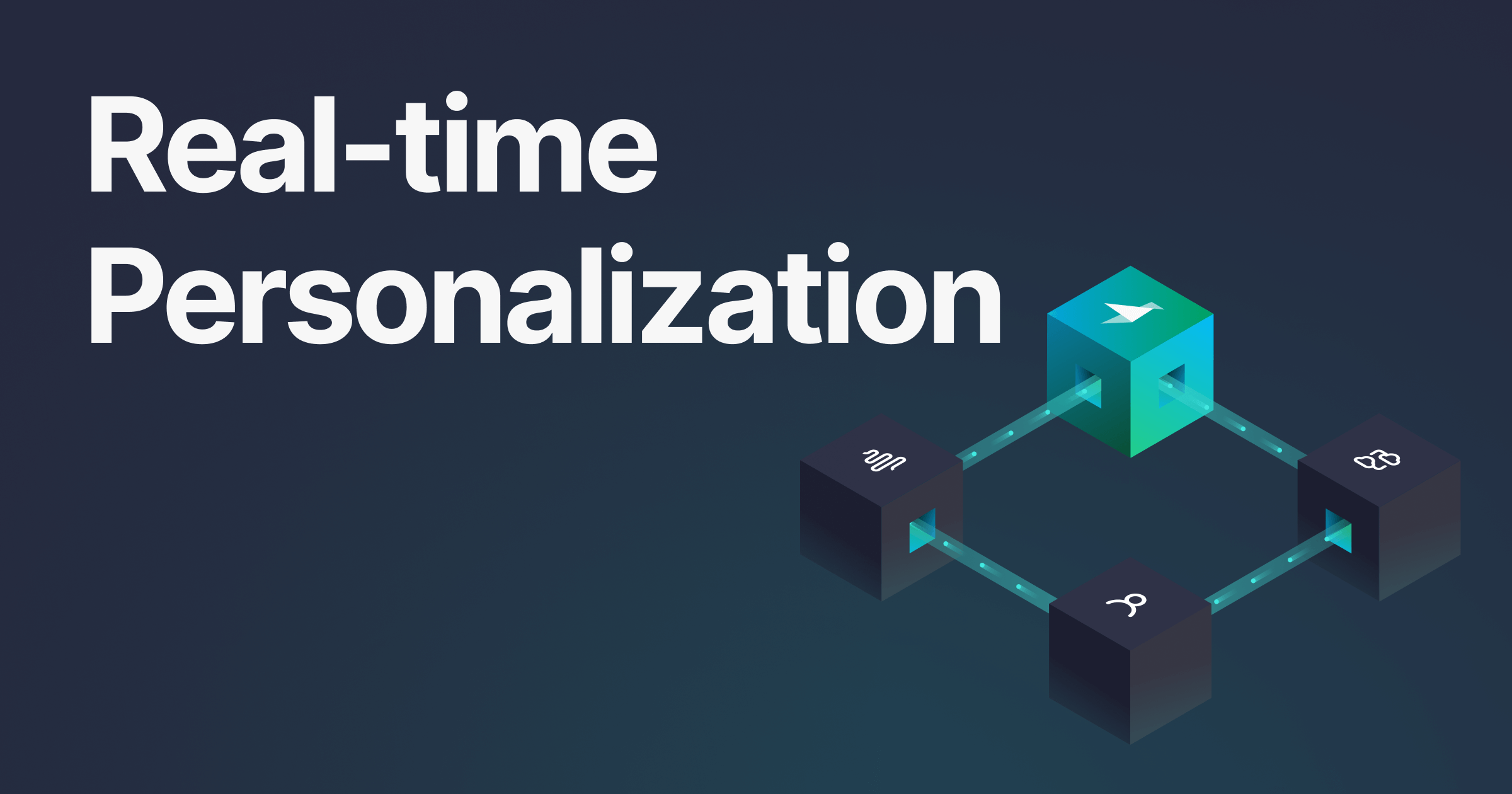Imagine going to an online store where every product suggestion feels like it was made just for you, or reading news that is completely relevant to your interests and tastes.
With real-time personalization technology, this level of customization is possible. This technology has completely changed how businesses talk to their customers.
In this introduction, you will explore nine compelling reasons why real time personalisation is indispensable in today’s business environment.
1. Enhanced Customer Engagement
Real-time personalization allows businesses to tailor their interactions with customers based on real-time data about their behaviors, preferences, and demographics.
For instance, an e-commerce website can use real-time data to show personalized product recommendations based on a customer’s browsing history or past purchases.
This not only increases the likelihood of the customer finding relevant products but also encourages them to explore more of what the website offers, thus increasing overall engagement.
2. Improved Customer Satisfaction
When customers receive personalized experiences that cater to their individual needs and preferences, they are more likely to feel satisfied with their interactions with the brand. Real-time personalization enables businesses to anticipate customer needs and provide solutions proactively, leading to a smoother and more enjoyable customer journey.
For example, an app in the hospitality industry can use real-time data to offer room upgrades or other perks to guests based on their past preferences or level of loyalty. This personalized service enhances customer satisfaction by exceeding expectations and demonstrating a commitment to customer care.
3. Higher Conversion Rates
Personalized experiences can significantly impact conversion rates by presenting customers with relevant offers or recommendations that are more likely to resonate with their interests. By leveraging real-time data to deliver personalized content or product suggestions, businesses can increase the likelihood of converting website visitors into paying customers.
For instance, an online clothing retailer can use real-time personalization to display recommended outfits based on a customer’s style preferences and browsing history.
This tailored approach not only enhances the shopping experience but also encourages customers to make purchases by presenting them with items they are more likely to be interested in.
4. Optimized Marketing Effectiveness
Real-time personalization enables businesses to tailor their marketing strategies and messages based on immediate customer behaviors and preferences.
For example, an online bookstore can send personalized email recommendations based on a customer’s recent searches or purchases. This not only increases the relevance of marketing messages but also boosts the likelihood of converting leads into sales.
5. Brand Loyalty and Retention
Personalized experiences foster stronger emotional connections with customers, leading to increased brand loyalty and higher retention rates. When customers feel understood and valued by a brand through personalized interactions, they are more likely to remain loyal and continue purchasing products or services over time.
For instance, a subscription service can use real-time personalization to offer tailored content recommendations or exclusive discounts based on individual preferences. This personalized approach not only enhances customer satisfaction but also encourages repeat business and reduces churn rates.
6. Setting Apart from Competitors
In today’s competitive market, real-time personalization can set businesses apart by providing unique and memorable customer experiences. By delivering personalized offers, content, and services that meet individual needs promptly, businesses can differentiate themselves from competitors who may offer generic or less personalized interactions.
For example, a travel booking platform can use real-time data to customize travel recommendations based on a customer’s previous bookings and travel preferences.
This personalized service not only enhances the user experience but also positions the brand as attentive and customer-focused, ultimately attracting more loyal customers and gaining a competitive edge.
7. Data-Driven Decision Making
Real-time personalization relies on analyzing data instantly to understand customer behaviors and preferences. This data enables businesses to make informed decisions swiftly, such as adjusting marketing strategies, optimizing product offerings, or improving customer service.
For instance, an online retailer can use real-time data to identify trends in customer browsing and purchasing behaviors, allowing them to adjust inventory levels or launch targeted promotions effectively. By leveraging data-driven insights, businesses can stay agile and responsive to market demands, ultimately improving operational efficiency and profitability.
8. Technological Advancements
Advancements in technology have facilitated the implementation of real-time personalization across various platforms and channels. From sophisticated algorithms to AI-driven analytics tools, businesses now can process vast amounts of data in real time and deliver personalized experiences at scale.
For example, AI-powered recommendation engines can analyze customer interactions in real-time to suggest products or services that match individual preferences and behaviors. These technological advancements not only enhance the accuracy of personalization but also enable businesses to stay competitive in a digital-first marketplace.
9. Ethical Considerations
As businesses collect and utilize customer data for real-time personalization, ethical considerations around data privacy and consumer consent become paramount. Businesses need to prioritize transparency, secure data handling practices, and respect customer preferences regarding data usage.
For instance, businesses should communicate how customer data is collected, stored, and used for personalization purposes. They should also provide customers with control over their data, such as allowing them to opt out of personalized marketing efforts if desired.
Adapt to the Evolving Digital Landscape with Real-Time Personalization
As you navigate the complexities of modern business, integrating real-time personalization into your strategies will ensure you stay agile, responsive, and ahead of the competition. So, embrace this transformative approach to deepen customer relationships, foster brand loyalty, and achieve sustainable growth in the digital era.
Stay in touch for more updates and alerts visit: Hint Insider!




